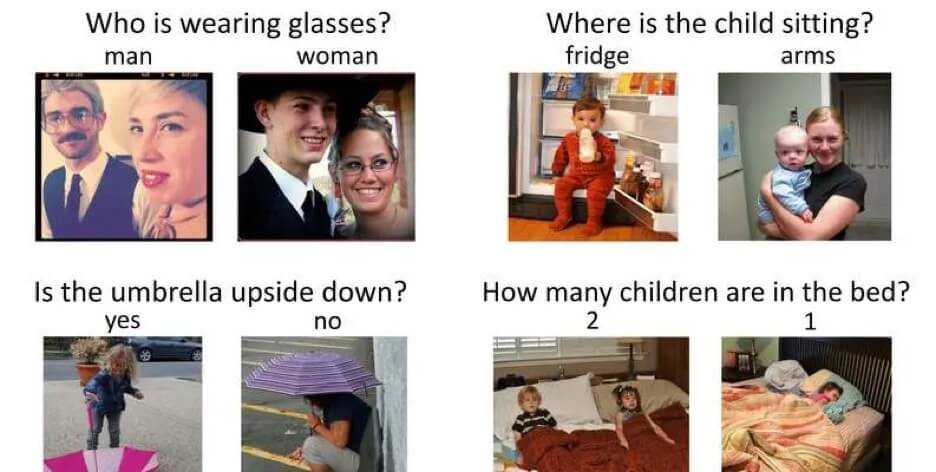(maadaa AI News Weekly: July 9 ~ July 15)
1. Amazon’s AI Shopping Assistant, Rufus, Debuts to Help U.S. Customers Shop Smarter
News:
Amazon has officially launched its AI shopping assistant, Rufus, to all U.S. customers. Rufus is designed to help shoppers find products, compare items, and make informed purchasing decisions.
Key Points:
- Rufus is integrated into Amazon’s mobile app
- It can answer product-related questions and provide recommendations
- The AI is trained on Amazon’s product catalog and customer reviews
- Rufus aims to simplify the shopping experience and increase customer engagement
Why It Matters:
The news shows that AI training datasets now include extensive e-commerce data, like product details, customer feedback, and shopping trends. This use of AI in online retail offers insights into consumer choices and improves AI models across different sectors.
2. OpenAI Unveils 5-Level Scale to Measure Progress Towards Artificial General Intelligence
News:
OpenAI has unveiled a new framework for evaluating the capabilities of its AI systems, focusing on potential risks and societal impacts. This approach aims to provide transparency and ensure the responsible development of powerful AI technologies.
Key Points:
- OpenAI will assess AI systems based on their ability to perform tasks in various domains
- The framework considers both beneficial applications and potential misuse
- Evaluations will be conducted by internal teams and external experts
- Results will be shared publicly to foster open dialogue and collaboration
Why It Matters:
The news shows that AI training datasets promote transparency and accountability in AI development, leading to more responsible and effective AI advancement.
3. AI Scores a Perfect Match: Amorepacific’s Cosmatch Uses Facial Recognition for Flawless Foundation
News:
South Korean beauty company Amorepacific has developed an AI-powered foundation recommendation system called “Cosmatch” that uses facial analysis to suggest the perfect foundation shade for customers. The system analyzes skin tone, texture, and undertones to provide personalized recommendations.
Key Points:
- Cosmatch uses AI to analyze facial images and recommend foundation shades
- The system has been trained on data from over 1 million customers
- It can be used in-store or through a mobile app
- Amorepacific plans to expand the technology to other makeup products
Why It Matters:
The news highlights the significance of diversifying AI datasets, especially for the beauty industry, to foster inclusivity and accuracy across various fields. Through the development of technologies like Cosmatch, AI leverages diverse facial data to improve personalization and facial recognition, showcasing its potential to solve real-world issues and enhance user experiences.
Additional News:
1. Shutterstock’s deals to license its library to train AI models are proving to boost growth, generating $104 million last year.
2. Google’s AI, Gemini 1.5 Pro, takes a physical form.A tall, wheeled robot powered by this powerful AI model now assists in Google’s California office.
3. SoftBank has acquired the UK-based AI chipmaker Graphcore, known for its “intelligence processing unit” (IPU) designed for AI workloads, potentially rivaling Nvidia’s GPUs.
4. EU’s AI Act has been published in the bloc’s Official Journal, and legal deadlines will begin. The new law will come into force in 20 days, on August 1, and its provisions will generally be fully applicable to AI developers by mid-2026.
5. Samsung launched the Galaxy Ring, its first smart ring, priced at $400. Pre-orders start July 10, and are available July 24.
maadaa.ai Shared Open and Commercial Datasets:
Open Dataset 1: MuSe
MuSe is a dataset designed to understand human stress through audio, visual, and emotional signals. It includes annotated recordings to explore distress expressions across different sensory modalities. The dataset provides insights into stress expression nuances, aiding AI models in understanding visual and vocal cues.
URL: https://aclanthology.org/2020.lrec-1.187/
Open Dataset 2: VQA
VQA datasets enhance models by combining visual understanding with language skills, featuring a variety of images and open-ended questions. They cover diverse image types for broad application and include various question styles for effective training. Additionally, some datasets provide annotations to highlight key areas within images supporting the answers, aiding in precise model learning.
URL: https://www.kaggle.com/datasets/henrychibueze/vqa-dataset
Open Dataset 3: AI Photo-Video Editing Open Dataset
Welcome to a treasure trove of data designed to train cutting-edge AI systems! This collection features:
- Stunning images
- Engaging videos
- Rich text
- Code snippets
Perfect for developing AI-powered editing applications, this dataset is the foundation of tomorrow’s intelligent technologies.
URL: https://maadaa.ai/datasets/OpenDatasetDetail/AI-Photo-Video-Editing-Open-Dataset
Commercial Dataset 1: Fashion & E-commerce Dataset Collection
This collection powers AI innovation in e-commerce, featuring:
- Diverse product images
- Rich metadata (prices, categories, descriptions)
- Wide range of fashion items
It is ideal for developing virtual fitting rooms, personalized recommendations, and visual searches. Dress up your AI models and revolutionize online fashion shopping.
URL: https://maadaa.ai/datasets/Fashion-ecommerce-dataset-collection



